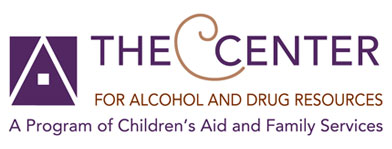Schools and parents play a key role in teaching youth about substance misuse, risks, and prevention. These free online resources to help youth build coping skills, make healthy decisions, and avoid substance misuse—especially as stress and trauma from recent challenges can increase risk.
We invite you share these activities with your students or try these activities out as a family and to have a discussion as a family afterwards.
All resources are recommended from reputable resources like the National Institute on Drug Abuse.
Elementary School
3rd Grade Healthy Life - Healthy Decisions Coloring and Activity Book
The PSEG Foundation 3rd Grade Contract for a Healthy Life features a newly updated coloring and activity book that encourages your third grade students to take the age appropriate pledge not to use alcohol, tobacco and other drugs (ATOD) that would be harmful to them. You, your students, and their parents are encouraged to sign the third grade contract on page one of the coloring and activity book. Students promise to stay alcohol, tobacco and drug-free and the school and parents promise to support this choice.
5th Grade Parent Alert
The 5th Grade Parent Alert educates parents to help their children handle stress and gives the tools to speak with kids about the dangers of drugs and alcohol.
Daniel Tiger's Grr-ific Feelings
Children can play, sing, and learn about all kinds of feelings with their friend and neighbor Daniel Tiger from the hit PBS KIDS series, Daniel Tiger's Neighborhood.
Emotions Memory Game
Match the emotion with the right emoji.
The Compassion Project (Grades 2-4)
EVERFI’s new social and emotional learning program, The Compassion Project, is the first comprehensive, no-cost program designed to promote compassion education and help educators facilitate lessons around fundamental SEL skills for students in grades 2-4, focusing on the complex but critical skill of compassion.
The Imagination Neighbor (Grades K-5)
No one gives a toddler a book and expects them to immediately know how to read. Reading is a skill that’s taught. The same is true with skills like sharing, making friends, or empathizing with someone else’s feelings. In the Imagine Neighborhood, we use stories, music, and activities to help kids and their grown-ups develop these skills. And we give grown-ups extra tools, like activities and conversation starters, that match the topic of each show’s story.
Zoo Academy
Zoo Academy is available for free for educators to use with your students during the 2019-2020 school year. At present, the program contains ten scenes or about two hours of game time. After students play these first six scenes, educators receive a baseline proficiency report for core social and emotional skills: impulse control, emotion regulation, empathy, communication, cooperation, and social initiation.
Middle School or High School
2020 National Drug & Alcohol IQ Challenge
Test your knowledge by taking the interactive National Drug & Alcohol IQ Challenge quiz!
BINAH: Building Insights to Navigate Antisemitism & Hate
BINAH: Building Insights to Navigate Antisemitism & Hate is a digital education course that targets all high school students, regardless of the makeup of their school community. Designed to integrate into Social Studies, ELA, or SEL curriculum, it can be taught in conjunction with teaching about the Holocaust, or as an independent lesson. Topics include the impact of antisemitic attacks on American society as a whole, the vast diversity of modern Jewish life, and how to be a strong ally. The first-person narrative storyline will help students to understand the history of antisemitism and connect past events with those happening in the present.
Character Playbook (Grades 7-9)
Character Playbook is an innovative digital character education program that uses engaging social-emotional learning activities to educate students about cultivating and maintaining healthy relationships during their critical middle school years.
CSI: Web Adventures
Test your forensics knowledge—find clues to unlock the mysteries of drug abuse.
Diversity Foundations for High School
EVERFI’s Diversity Foundations for High School introduces learners to key concepts of identity, bias, power, privilege and oppression. This course establishes the importance of ally behavior, self-care, and creating inclusive spaces. The five mobile-friendly digital lessons can easily be integrated into any instructional setting.
Drugs and Alcohol: Can You Tell Fact from Fiction?
Do you know the facts about drugs and alcohol? Challenge yourself today with this quiz. This quiz is on an app called Kahoot so everyone can use their own device at the same time and play against each other
Drugs and Your Body
It isn't pretty. See the ugly truth about how drugs can effect the body.
Drugs of Abuse
Explore what happens to the brain on different substances through short video clips.
E-cigs, Vapes, and Mods: What Do You Know About Vaping?
Do you know the latest on vaping? Test your knowledge today! This quiz is on an app called Kahoot so everyone can use their own device at the same time and play against each other!
Honor Code - Bullying Prevention
Students are able to apply the social skills learned in each module by engaging in real life based scenarios that challenge them in areas of courage, leadership and resilience. Upon completion of the course, students have the opportunity to take their learning offline and into their school through a Capstone Project that puts their newly learned leadership skills into practice.
Ignition: Digital Literacy (Grades 6-9)
Through six digital responsibility lessons, students take practical steps to protect their privacy and safety online. Students will learn critical digital literacy skills digital literacy skills including how to evaluate content for accuracy, perspective, and motive. Ignition helps students acknowledge the benefits of online communities and resources while guiding them to successfully navigate potential pitfalls in their digital lives.
Keeping Prescriptions Safe: The Facts About Prescription Drug Misuse
Did you know that prescription drugs aren't safe for everyone? Take this quiz and test your knowledge. This quiz is on an app called Kahoot so everyone can use their own device at the same time and play against each other!
Marijuana Myths: Can You Tell Fact from Fiction?
What do you know about marijuana and its effects on the body? This quiz is on an app called Kahoot so everyone can use their own device at the same time and play against each other!
Mental Wellness Basics
Like our physical health, our mental health can be strengthened or diminished through daily habits. Mental Wellness Basics is a digital resource that introduces middle and high school students to mental health education. Stigma associated with mental health can have serious and negative impacts on help-seeking behaviors, and many mental health conditions and symptoms can be significantly lessened through prevention.
Mouse Party
Get an interactive and inside look at the brains of mice on drugs.
N-Squad
Players help solve a hit-and-run accident by gathering evidence, interpreting data, conducting experiments and consulting experts. Players learn about how alcohol affects the body so that they can make informed choices. Players also learn to classify alcohol as a depressant, and identify the organs and functions affected by alcohol. Quizzes embedded in the game assist with learning.
Operation Prevention
Explore common misconceptions about opioids through the voices of teens.
Ride Into a Safer Future
Learn what every teenager should know about road safety and get an inside look at the future of fully self-driving technology with this self-guided curriculum for high schoolers. This curriculum was created in partnership with Mothers Against Drunk Driving (MADD), Students Against Destructive Decisions (SADD), and Waymo's public education campaign Let’s Talk Self-Driving. Boost your autonomous vehicle IQ with essential facts, videos, and quizzes. After completing this curriculum, high schoolers will be equipped to educate their families and peers and inspired to be part of a safer future.
Substance Use and Your Brain: Do You Know the Facts?
How do drugs affect your brain? Test your knowledge with this quiz. This quiz is on an app called Kahoot so everyone can use their own device at the same time and play against each other!!
The Keys to Brain Power
An interactive science education program for students in grades 6–9 about the brain and the effects of drugs on the body. Includes six modules, resources for students, parent guides, and online activities
The Quiz Room
Students answer questions about drugs and alcohol in an interactive quiz. Questions are timed and three incorrect answers will knock students out of the game. Questions cover a range of substances and related issues, so that students receive a broad education.
The Reconstructors: A Plaguing Problem
Students solve crimes and learn how opioids affect the body.
The Reconstructors: Nothing to Rave About
Players help solve drug-related cases by gathering evidence, interpreting data, conducting experiments and consulting with experts. Players learn about how MDMA/ecstasy and other party drugs affect the body so that they can make informed choices when encountering MDMA/ecstasy and other party drugs. Players also learn to identify which parts and functions of the brain are affected by stimulants, distinguish between the physiological effects of stimulants and hallucinogens and interpret experimental data and draw conclusions from virtual experiments on the effects of certain drugs.
The Reconstructors: Uncommon Scents
Players help solve drug-related mysteries by gathering evidence, interpreting data, conducting experiments and consulting with experts. Players learn about how inhalants affect the body so that they can make informed choices when encountering inhalants and toxic vapours.
What’s the Buzz About Stimulants?
Can caffeine and stimulants harm your health? Test your knowledge today. This quiz is on an app called Kahoot so everyone can use their own device at the same time and play against each other!

